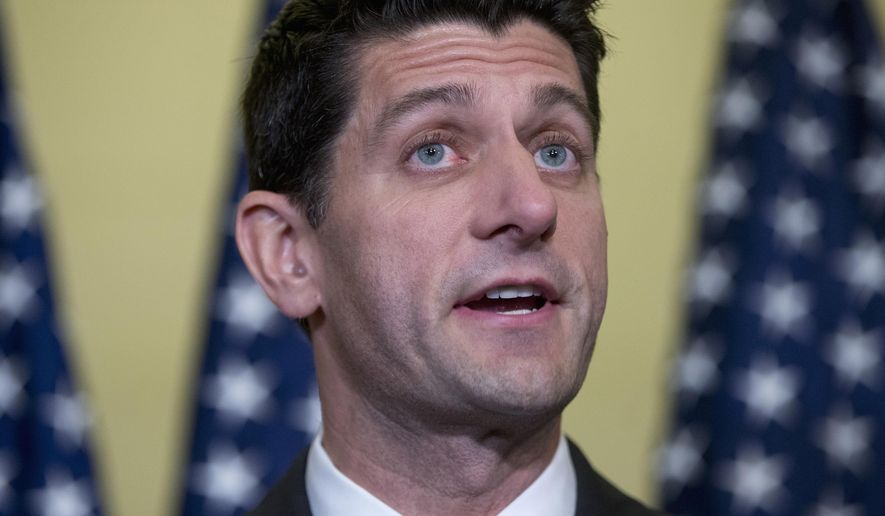House Republicans accused the administration Thursday of throwing good money after bad to bolster Obamacare’s co-ops even when it should have been clear they were struggling and would be unable to survive.
All told, 12 of the 23 co-ops set up under the Affordable Care Act have failed, including six that got an infusion of emergency cash in late 2014 but still went under. Among those were the Nebraska-Iowa co-op and programs in New York and Kentucky.
“At the time of the awards, these three insurers were operating at substantial losses that seemingly stemmed from poorly pricing their products,” said Sen. Ben Sasse, Nebraska Republican who traversed Capitol Hill to testify before the House Energy and Commerce Committee.
State regulators have shut down the co-ops at an astonishing clip in recent weeks, setting off a new round of recriminations on Capitol Hill, where Republicans say they’re unsure if taxpayers will recoup $1.2 billion in loans the government issued to the failed enterprises.
Mr. Sasse said the failure of New York’s program has sent consumers scrambling to find coverage by Nov. 30, when the co-op will close down — a month earlier than anticipated.
Dr. Mandy Cohen, chief operating officer at the Centers for Medicare and Medicaid Services, said they carefully vetted the New York program’s request for an extra $91 million.
SEE ALSO: More than half of Obamacare co-ops go belly up
“Our independent expert panel, who reviews these, felt that a further investment in the New York co-op was the right decision,” she said.
She also vowed her agency will be “good stewards of taxpayer dollars.
“The co-ops, or Consumer Operated and Oriented Plans, were set up as nonprofit alternatives to the policies offered by for-profit insurers when the Affordable Care Act’s exchanges opened for business.
State regulators and co-op officials told Congress the plans were hampered by a mix of factors.
The administration had hoped to have $6 billion in taxpayer money to help struggling programs cover costs, but Congress cut the startup money to $2.4 billion and prohibited the co-ops from taxpayer money to market themselves.
The co-ops struggled for market share and couldn’t meet their own goals of offering plans with low premiums, while still covering customers needs.
SEE ALSO: Obama not to blame for GOP victories, White House says
Louisiana Insurance Commissioner James Donelon said the co-op idea was well-intentioned, but the plans were starting from scratch in a very complex market dominated by established companies. Louisiana’s now-defunct co-op attracted just 9,000 customers in its first year, or 19,000 short of the goal in its loan agreement with the administration.
“In hindsight, I’ve analogized it to being similar to learning how to sail in a hurricane,” he testified. “It truly was not possible, in my judgment, to succeed under those circumstances.
“For some, the news isn’t all bad. Peter Beilenson, president and CEO of Evergreen Health Cooperative in Maryland, said his co-op is in good standing because it has a diverse pool of enrollees and was “nimble” enough to navigate choppy waters.
“This can be a profitable mechanism,” he testified.Program supporters said some of the failed co-ops could have been profitable if the government had lived up to its own promises. But insurers found out this fall they would only receive a fraction of what they were expecting from a risk-adjustment formula intended to compensate them against heavy losses under Obamacare.
“For some co-ops, this was the fatal blow,” said John Morrison, vice chairman of Montana’s co-op. Congress made the risk corridor program budget neutral, meaning insurers lost out when claims for funding far exceeded the amounts that well-performing insurers paid into the program.
House Democrats said Congress could have stepped in to buoy the co-ops and foster competition, but that Republicans were all too happy to see a piece of Obamacare falter.
Rep. Chris Collins, New York Republican, said the co-ops had themselves to blame, low-balling their prices and expecting the federal government to swoop in and bail them out.
“I feel sorry for the American taxpayers, who are bearing this financial burden, who were deceived from day one,” he said. “And it’s all coming home to roost.”
• Tom Howell Jr. can be reached at thowell@washingtontimes.com.




Please read our comment policy before commenting.